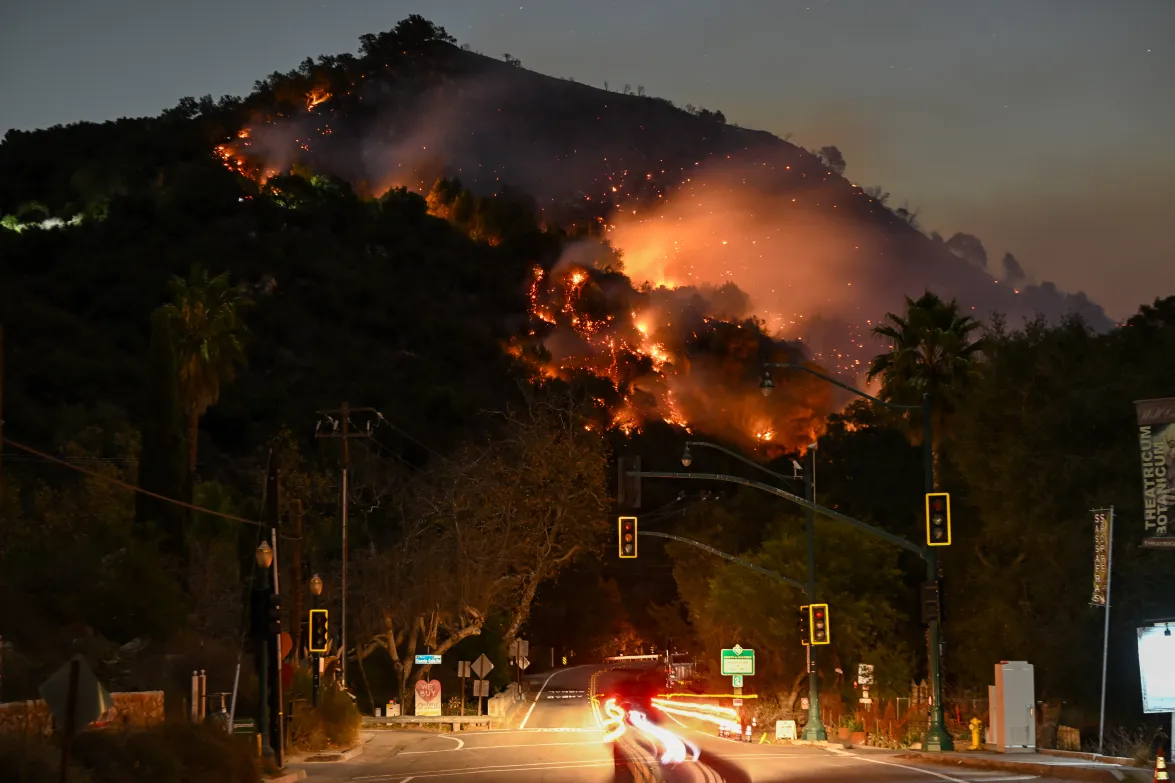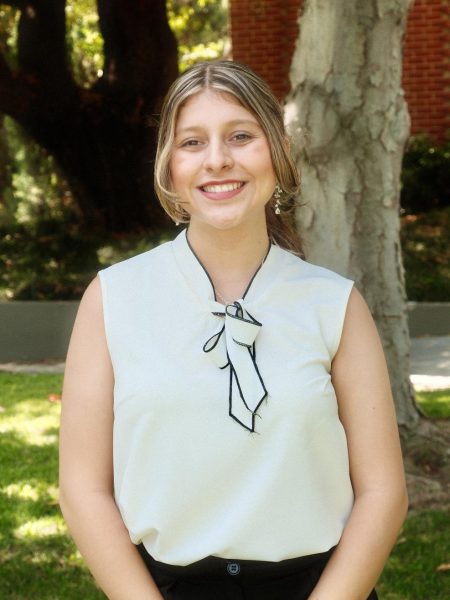Since Tuesday morning of Jan. 7, fires have erupted in numerous locations across Los Angeles County. Strong winds further fueled the fires, spreading and burning thousands of acres within hours.
11 deaths have been confirmed as of Friday, Jan. 10.
PALISADES, EATON AND HURST AS THE FIRST THREE FIRES
The Palisades Fire began Tuesday morning along with strong winds that contributed to the quick spread. Over 20,000 acres of land have burned within the last few days.
Multiple LA landmarks have been lost, such as the Topanga State Park and Will Rogers State Historic Park. Additionally, many civilian homes have been completely lost to the fires. Thousands of people living in Pacific Palisades had to abandon their homes and valuables in an effort to get away from the fires.
The Eaton fire was the second fire to start the night of Jan. 7 near Altadena. Eaton mirrors the Palisades Fire closely in its level of destruction, burning more than 13,000 acres of land in minutes and causing thousands to evacuate.
The Palisades Fire has become the most destructive fire in LA county history and the third most destructive in California history, with it only being 8% contained so far. Meanwhile, the Eaton fire is only 3% contained and currently has evacuation orders and warnings in place in the surrounding areas.
The Hurst Fire began Tuesday night, Jan. 7 in Sylmar, the third fire to start only a few hours after the Eaton fire began. Evacuation orders and warnings were issued at 10 p.m., forcing many to abandon valuables and leave their homes during the night. At the time, it had already spread more than 100 acres.
By Thursday, Jan. 9, the fire was 37% contained. Evacuation orders remained in place due to the harmful air quality caused by the fires. As of Friday, Jan. 10, the Hurst Fire has been 70% contained and all evacuation orders and warnings have been lifted.
Orange and Maroon Photo Heavy Natural Disaster Generic Crisis Hub Infographic (2)GOVERNMENT AID
The current damages reported exceed $50 billion. Many have also reported their home insurance being dropped.
President Biden announced Thursday, Jan. 9 that the federal government would cover 100% of the costs of the damages caused by the fires.
“I’m going to make an appeal right now to the United States Congress. They’re going to have to step up when we ask for more help to get people the kind of — they need, to get the kind of help they need. Because it really does matter,” Biden stated.
SCHOOL DISTRICT CLOSURES
The fires have led to the closure of multiple school districts in LA County. The school districts that are closed are as follows:
- Alhambra Unified School District.
- Arcadia Unified School District.
- Compton Unified School District.
- Culver City Unified School District.
- Beverly Hills Unified School District.
- Burbank Unified School District (closed through Friday, Jan. 10).
- Duarte Unified School District.
- Garvey School District.
- Glendale Unified School District (closed through Friday, Jan. 10).
- Glendora Unified School District.
- La Canada Unified (closed through Friday, Jan. 10).
- Los Angeles Unified School District (closed through Friday, Jan. 10).
- Monrovia Unified School District.
- Pasadena Unified School District (closed through Friday, Jan. 10).
- Rosemead Unified School District.
- San Gabriel Unified School District.
- Santa Monica Malibu Unified School District.
- South Pasadena Unified School District.
- Temple City Unified School District.
Additionally, UCLA canceled their undergraduate classes and moved their graduate classes online. Pepperdine University moved to online classes until Jan. 19. The University of Southern California (USC) canceled their new student convocation due to the fires.
BIOLA STILL TO BEGIN CLASSES IN PERSON ON JAN. 13
Meanwhile, Biola University announced on Jan. 8 through an email that the campus will still open for classes on Monday, Jan. 13 and that the fires are not a threat to campus.
“Biola’s Campus Safety team has been closely monitoring the situation,” the email stated. “After assessing the campus both last night and this morning, they have determined that the campus was not affected by the windy conditions. They will continue to monitor the situation and will send further updates via email if conditions worsen.”
Biola sent another email on Jan. 9 with “important updates for students and faculty as they prepare to return to campus” regarding travel, on-campus housing and precautions for health amid the fluctuating air quality.
The university also expressed their grief over Biola community members affected by the fires in this second email.
“We grieve with those affected by the wildfires and invite everyone to join us in prayer,” the email stated.







